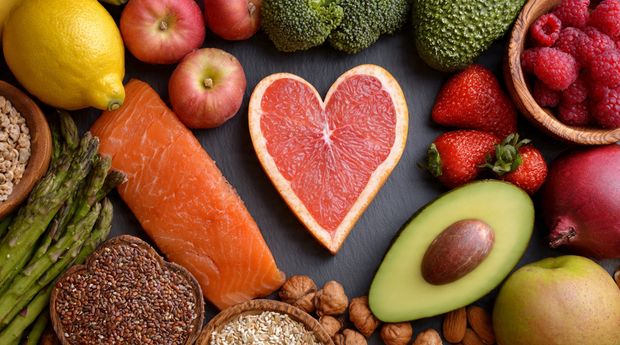Did you know that nearly 70 percent of your immune system is housed in your gut? While frequent hand washing and social distancing are crucial in preventing the spread of illnesses, being mindful of the food and beverages you consume can also help support your immune system and keep you well. Taking steps to ensure your digestive system is functioning properly is an essential part of maintaining your overall health.
When food is broken down during digestion, your gut works to absorb nutrients that are used to support a variety of bodily functions and eliminate waste from your body. Healthy bacteria found in your gut is also used to stimulate the development of T‑cells, which are responsible for distinguishing your body’s cells and tissue from potentially harmful things in your body. When there is an imbalance in your gut, such as an overgrowth of “bad” bacteria, it can confuse your immune system causing it to start attacking your own cells. If your immune system is busy reacting to healthy cells, not only is it easier for you to get sick, it’s also harder for your body to recover.
This is why maintaining the balance and health of your digestive system is important to protect your immune system. Gastroenterologist, Vishal Desai, MD, shares five ways you can boost your immunity and prevent illness with healthy habits.
Watch what you eat
The foods and beverages you consume affect how your digestive system operates and can disrupt the balance of the good and bad bacteria found in your gut. Whenever possible, avoid processed foods. They contain additives such as artificial sweeteners, salt and saturated fats that can lead to digestive issues.
Try adding fiber-rich foods to your diet such as fruits, grains, nuts and vegetables. Fiber helps to regulate your digestive tract, promote regular bowel movements and support the good bacteria in your gut.
Foods that contain probiotics can also give your digestive health a boost. Probiotics are healthy bacteria that work to break down fiber in your body, reducing indigestion symptoms including gas and bloating. Probiotics are found in fermented foods such as sauerkraut and miso as well as yogurts containing live and active cultures.
Drink plenty of fluids
Inadequate fluid intake can cause constipation, so it’s important to drink plenty of fluids. Aside from water, non-caffeinated beverages like herbal teas or sparkling water, or fruits and vegetables that contain high amounts of water such as melons, peaches, tomatoes, cucumbers or zucchini can help keep you hydrated. Try to avoid sodas and sweetened/flavored waters as these can lead to dehydration.
Limit alcohol and caffeine
Alcohol can disrupt the balance of good and bad bacteria in your gut. Alcohol may also increase acid production in your stomach, leading to heartburn and acid reflux. Caffeine can also disrupt the balance of good and bad bacteria in the gut, however, if taken in moderation (only 1 – 2 cups per), there is no harm.
Find ways to relax
Stress can impact your whole body, including your digestive and immune systems. When you experience stress, the blood and energy normally used by your digestive system are instead re-directed to other areas of your body. This can cause a variety of digestive conditions and symptoms such as irritable bowel syndrome, ulcers or changes in your bowel habits. Stress management techniques like deep breathing exercises and meditation can help reduce stress and prevent digestive issues.
Stay active
Physical activity helps to move food through your digestive system. Taking a walk after meals or engaging in 30 minutes of physical activity a few days a week, can promote regular bowel movements and reduce inflammation in your body.
While many things in life may seem out of our control, there are steps you can take to maintain strong digestive health and support your immune system. For more information on digestive issues and your health, schedule an appointment with a gastroenterologist online or by calling 630−717−2600.
Health Topics:







